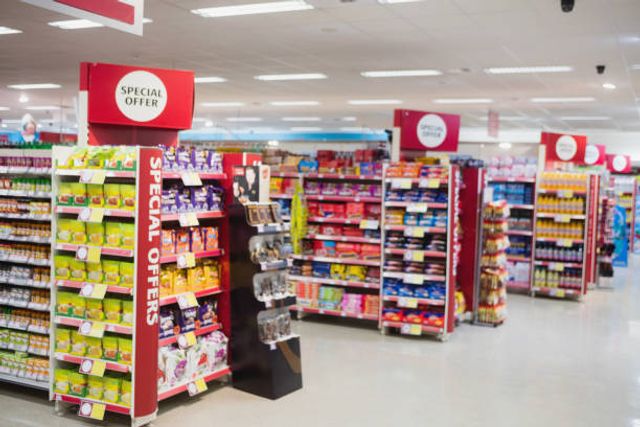
During the time of Post-Brexit, pandemic-ridden Britain, we experienced severe supply shortages in our supermarkets bought about not just from crazed panic buying but also a reduction in imports. Now we have grown a little more used to what lies beneath the deep layers of stock; we have an opportunity for supermarkets to begin to change and develop to integrate further into our new digital world.
The idea of having no stock is terrifying to a retailer because, the theory is, if they don’t have anything in store, they can’t do any selling. After the pandemic-driven shortages, retailers ordered anything they could get their hands on. At the time was considered a sensible decision, considering consumer spending was drastically increasing. Analytics in 2021 showed there to be more of a risk of shortages than overstocking in 2021 and the beginning of 2022.

So the problem now lies with a misjudgement by the people who made that informed gamble: supermarkets have too much stuff. Human beings can’t predict the future; however hard we try to organise information, there is a chance the outcome won’t be as expected.
But we do have the opportunity to learn from these mistakes and begin to look to AI for a little bit of guaranteed help. AI could be the new powerhouse in retail by simulating consumer spending variables and pricing goods once they are in the retailer’s possession. An article in the AI Journal explores the development of AI in retail drawing upon the themes of targeted selling and consumer spending tracking.

From historical data, we can spot trends. However, this will never be able to account for soaring energy bills or global pandemics that feel as though they appear out of nowhere overnight. We can use AI to produce weekly simulations of what’s in season based on current demand profiles. AI also offers the ability to devise off-season sell-outs and targeted discounts throughout the season.

Location-targeted AI would identify which products are selling best in different stores, which would benefit the production of targeted sales and advertising for each store. Overall sales and advertising campaigns would be more successful and drive profits store by store and within the conglomerate.
We have all watched the Freddo pass the 25p mark, which firmly portrays the reality of supermarkets having to keep up with inflation just as the rest of us are. Change has been happening within a matter of moments, and financial instability can be a terrifying prospect for people. We have seen this fear reflected in their shopping habits. If retailers want to remain part of the game, AI is one of the only reliable methods of prediction and analysis.
We can’t foresee the future with any certainty because we struggle to sort all the information available to us.